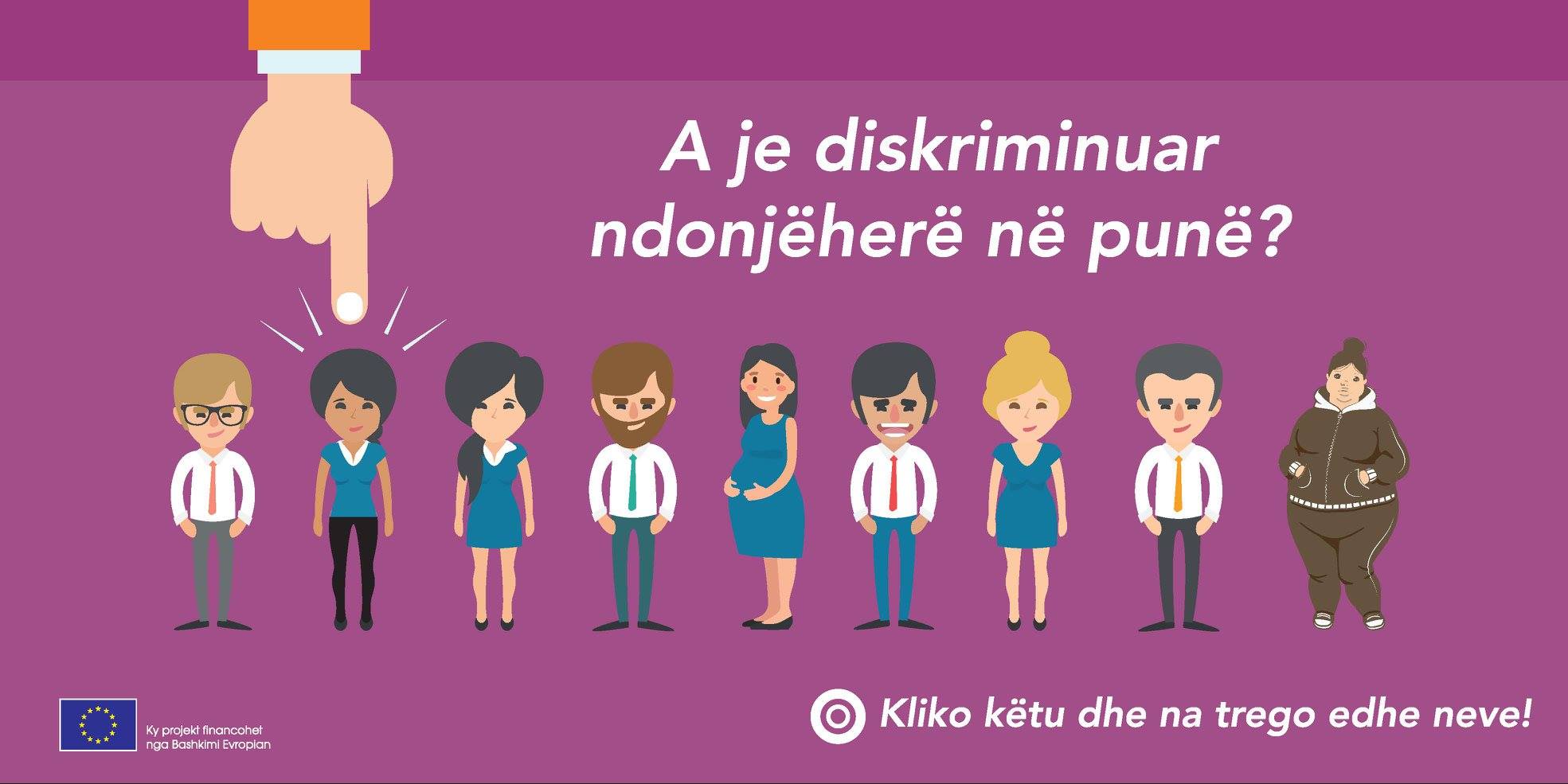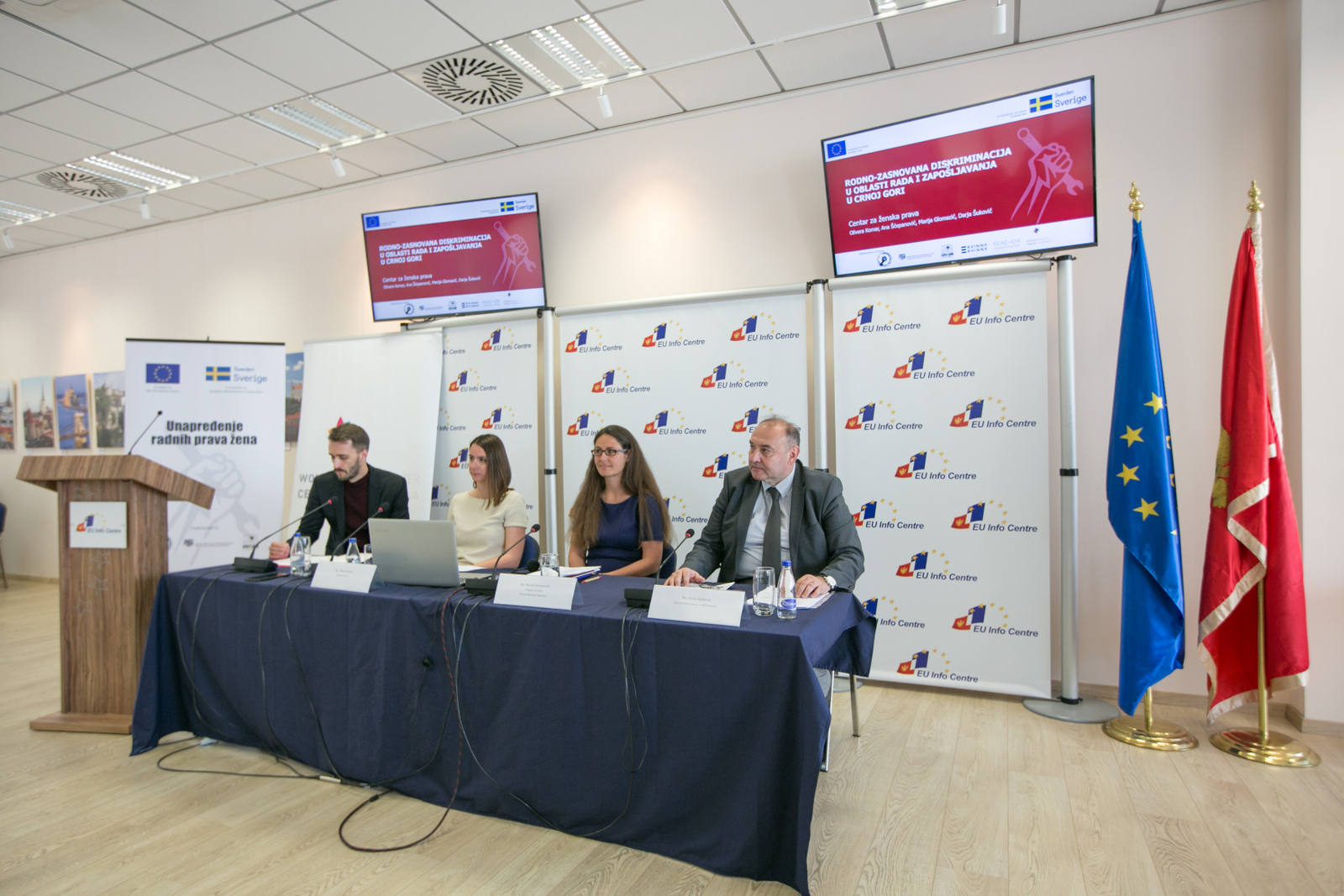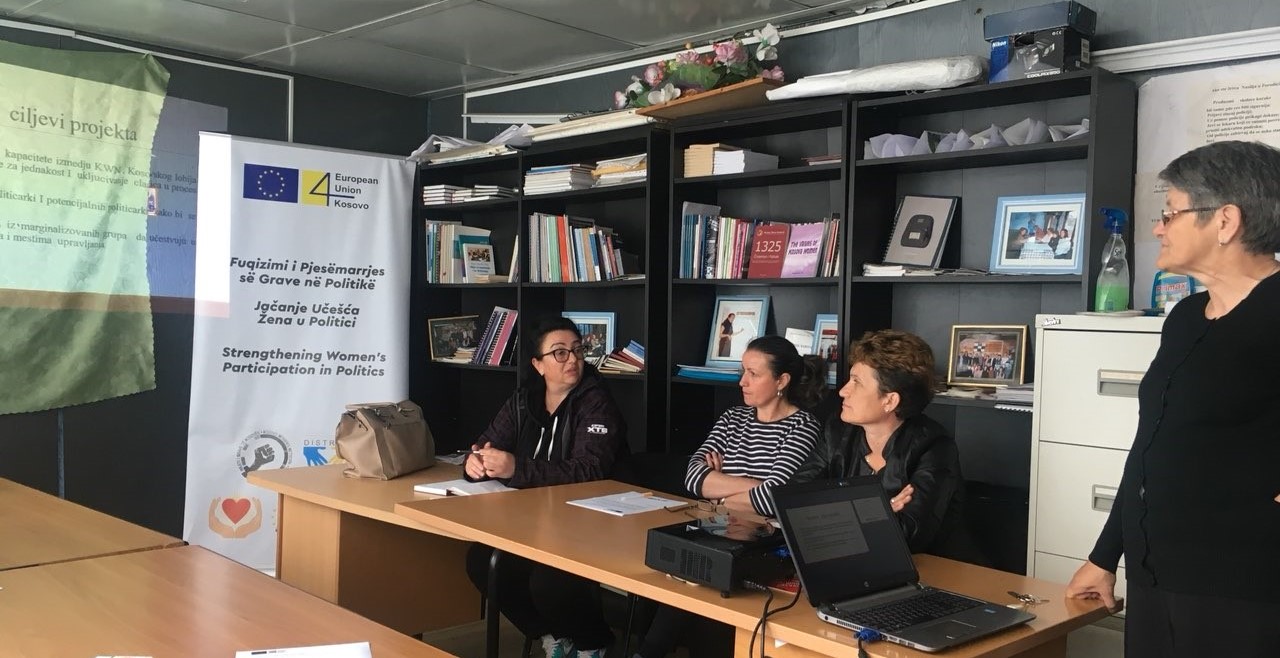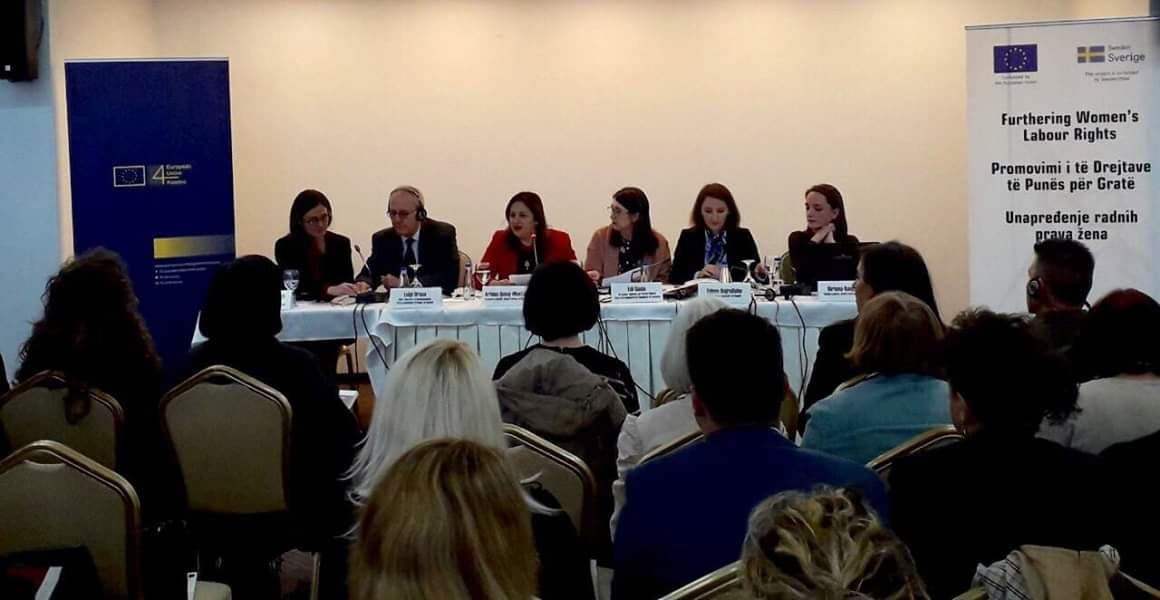The Kosovo Women’s Network (KWN), together with five partner organizations from Albania, Macedonia, Serbia, Montenegro and Bosnia and Herzegovina, is implementing the regional project “Fighting Discrimination, Improving Women’s Rights at Work”, funded by the European Union (EU). The project aims to consolidate the regional networks of civil society organizations. The KWN is collaborating with these five partners from five countries in the region, and the project is focused on empowering various civil society organizations in Southeast Europe to hold relevant institutions accountable for implementing legislation on protection against discrimination in relation to women’s rights at work.
Within this project, apart from other activities, it is envisaged to conduct a survey on the implementation of the anti-discrimination law, particularly with regard to women’s rights at work. The data from the research will serve as an indicator of how widespread gender discrimination is in the labor market, and at the same time, will provide concrete suggestions on the required course of action. An important part of this research is the anonymous questionnaire for the citizens of the respective countries, through which each partner organization in the region will measure, among other things, how widespread is gender discrimination in the labor market.
During November, the KWN in Kosovo, the Gender Alliance for Development Center in Albania, the Kvinna Foundation in Serbia, Reactor – Research in Action in Macedonia, the Center for Women’s Rights in Montenegro, and Helsinki Citizens’ Assembly Banja Luka in Bosnia and Hercegovina, launched an online questionnaire for citizens, through which data on discrimination at work are collected, in particular on how discrimination can affect women and men differently.
Research teams are jointly working on the processing of data from interviews with relevant institutions and questionnaires. The research report is expected to be launched during the first months of 2019.






